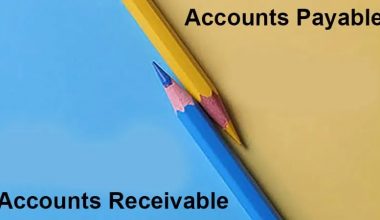A freelancer’s work entails providing services to an individual or client without the benefit of an employment arrangement or connection. Freelancers are self-employed persons that provide a variety of services in a variety of industries. Knowing the freelance process might help you assess whether it’s a suitable fit for you and your career goals. Here, we’ll take you through everything you need to know about being a freelancer, including the different types of freelancers available.
Who Is a Freelancer?
A freelancer is someone who works as an independent contractor and gets money on a per-job or per-task basis. Because a freelancer is not an employee of a company, he or she is free to work on multiple projects at the same time, unless contractually committed to working exclusively on one project until it is done.
Freelancers can also be referred to as gig workers.
How Does Freelancing Work?
While some freelancers work full-time, others use their freelancing firms to supplement their income while juggling other commitments. People may refer to the freelancing labor market as the gig economy, which refers to seeking different “gigs,” or tasks, rather than working as an employee for another organization. Freelancers may also be known as contractors or independent contractors.
Although freelancers can work directly with clients to supply services, many rely on internet sharing economy platforms to get work. Some freelancers specialize in specific industries or areas of business, while others offer a broader range of services to their clients. Many of the services required by businesses and self-employed people are provided on a freelancing basis. When you provide freelancing services, you get compensated for the project. You can move on to the next job once you have completed the service.
How Do Freelancers Get Paid?
Payment methods for freelancers differ based on who or what business is providing the employment opportunity. You might bill the customer for the hours you worked and be paid according to the organization’s accounts payable terms. You may be paid immediately after completing the task via an online payment mechanism, or you may have to wait for the client to issue a check. Payment terms can often be up to 90 days from the moment you submit work or receive client approval.
Some freelancers set their own rates, while others accept the payment rates offered by potential clients. Individuals who rely on third-party sites or sharing platforms to get employment frequently have a defined rate that is set by either the company or the client. Some sites may take a cut of the profits in exchange for locating clients and connecting them with talented freelancers.
The Advantages and Disadvantages of Working as a Freelancer
The opportunity to work from home or other unusual workspaces, a flexible work schedule, and a better work-life balance are all advantages of being a freelancer. Freelance work can benefit laid-off workers, lowering the frequency of overall unemployment in an economy.
The disadvantages include uncertainty regarding future earnings, job stability, and consistency in finding new work. There are also fewer employer benefits, including as insurance and retirement plans, and occasionally lower hourly wages when compared to employed salary employees. Apart from those who qualified for Pandemic Unemployment Assistance (PUA) during the epidemic, freelancers are not eligible for unemployment insurance.
Types Of Freelancers
The various types of freelancers are as follows:
#1. Freelance art director
Independent art directors lead creative design teams in a variety of businesses. They supervise the designs of other artists and direct them to produce work that is consistent with their project concept. Freelance art directors must have an excellent portfolio, a solid experience in art and design, and be proficient in a variety of creative software tools such as Photoshop, Illustrator, InDesign, and others.
#2. Freelance photographer
A freelance photographer is an independent contractor who books photography work with customers. This might include everything from weddings and infant photographs to commercial and fashion sector work. Photographers who work as freelancers own their own equipment and charge for their sessions. To deal with their clients, they must have strong customer service skills as well as computer skills for editing and modifying photos.
#3. Freelance designer
Freelance designers work for themselves. They design visual and graphic images for their clientele. Their services include logo design, website development, magazine publication, advertising, and commercial work. They typically have a background in art or design and have often attended art school to learn their craft. Freelance designers use computer tools to create and build designs that they then submit to clients.
#4. Freelance copywriter
Freelance copywriters create copy for commercial usage on a contract basis with customers. They write articles, blog posts, press releases, website text, ebooks, white papers, and case studies, among other things. Copywriters who work as freelancers may work directly with clients, through copywriting companies, or through Internet job exchanges. Their customers could be content marketing agencies, web design firms, or business owners.
#5. Freelance graphic designer
Freelance graphic designers work with businesses and individuals to create fresh design concepts, layouts, and visuals. They use a variety of media and graphic design applications and are responsible for creative brand building. Freelance graphic designers often have a graphic design degree and experience with conceptual design as well as software such as Photoshop, InDesign, and Dreamweaver.
#6. Freelance content writer
A freelance writer is a self-employed writer who accepts writing assignments from a variety of sources for short or long-term projects. Web materials, resumes, articles, and blogs are some examples of their work. Most Freelance Writers work from home and have a flexible schedule, whether they are writing for a corporation or an individual. Independent writers have excellent language abilities and can work under pressure.
#7. Freelance web designer
A freelance web designer is a self-employed someone who builds websites for clients. Web designers build website layouts based on client needs, produce graphic designs, and maintain the resulting website’s coding. Freelance web designers can frequently work from home. Front-end web development experience is frequently necessary.
#8. Freelance recruiter
Freelance recruiters identify talent for businesses in a variety of industries. Because freelance recruiters supervise the initial job application and interview process for their client companies, they must be familiar with human resources procedures. Good communication skills and industry knowledge are required. When a job candidate accepts a position, they are paid a retainer or a commission.
How Do You Become A Freelancer?
There are numerous avenues to success for freelancers. You can start your trip in your leisure time or as a full-time job. Whatever technique you take, Here are some steps on how you can start up a career as a freelancer.
#1. Specify your service and offer.
Making your abilities available as a service is the first step toward becoming a freelancer. To do so, you must understand how your expertise might benefit a potential client. Put yourself in the shoes of your ideal customer. What difficulties do they have, and how can you help them solve them?
It is critical to understand that clients are looking for a solution to a problem. To be a successful freelancer, you must first understand the client’s condition and then use your service to solve their problem. The answers to these questions will serve as the foundation for how you bundle your services. It is time to create a concise description of the service that will assist you in selling your freelance service to businesses. Attempt to explain what you can do, how you do it, and for what type of business/client you can accomplish it. Don’t worry about the price just yet; we’ll get to it later.
#2. Identify your target audience.
You’ll need to discover a target audience now that you have a freelance service to offer. Begin by determining the kind of people who will benefit from your offering. Do these clients share a common problem and characteristics? Do they work in a specific industry?
As a new freelancer, simply being good at what you do will not result in clients seeking you out. It’s critical to get in front of potential clients so they can learn about your services. You must be proactive in locating potential clients. There are three approaches for most freelancers to get clients:
- Platforms for posting freelance jobs
- Use existing contacts and networking to your advantage.
- Marketing, advertising, and public relations
Knowing which of these solutions works best for you is essential for locating appropriate clients for your services.
#3. Create a price scheme.
It’s time to decide your price when you’ve properly defined your service and target market. The idea is to maximize your pay while avoiding losing possible jobs. Thus, to begin, examine your market competition. What do they charge for comparable freelancing services?
In reality, there is no one-size-fits-all formula for pricing freelancing services. Numerous factors can influence how much clients are willing to pay:
- Experience
- Industry
- Duration of the project
- Deliverables
- The project’s complexity
- Geographical location of the client
- Urgency
#4. Compile a portfolio of previous jobs.
Developing a strong portfolio is an essential step toward becoming a successful freelancer. As a freelancer, your portfolio establishes the quality of your work by exhibiting your accomplishments and previous assignments. Here is your chance to demonstrate to clients, rather than simply telling them, what you are capable of achieving and the value of your knowledge.
Your portfolio should include examples of your best work in relation to your service offering. Each element in your portfolio should reflect your contributions and how the project benefited the client. A strong portfolio may include case studies, testimonials, data-driven results, photos, charts, work samples, and mock-ups. It is critical to obtain permission from previous clients before including their project materials in your portfolio.
#5. Create an excellent proposal.
Your first project as a freelancer should closely match your work experience and competencies to ensure a good start. When you locate a project for which you are certain you can deliver exceptional service, it is time to submit a proposal.
The perfect proposal might mean the difference between getting a job or not, so having one that works for you is crucial.
Using a template to arrange your proposal might assist, but the most successful freelancers personalize it to the unique customer and project. Putting in the extra time and effort upfront indicates your sincerity, excitement, and professionalism.
#6. Establish a rapport with your client.
Your clients are your company as a freelancer. While it may appear obvious, it is important to cultivate a positive working connection with your clients. Effective freelancers build connections with clients rather than viewing the work as a one-time event. Establishing a long-term relationship can result in recurring business and client referrals. Here are some important things to remember when building a relationship with your clients:
Perform good work: Client happiness requires high-quality work. To have a chance to create a long-term relationship with the client, you must provide value and solve the client’s problem.
Interact with the customer: Client communication that is effective builds a stronger business relationship and encourages clients to continue working with you on future projects.
Establish trust by being consistent: By consistently finishing your work on schedule and delivering precise deliverables, you may establish confidence and demonstrate to your client that they can rely on you in the future.
Look for possibilities to add extra value: You exhibit your potential worth to the customer and open up new ways to collaborate by taking the initiative, identifying new solutions, and taking on extra tasks.
#7. Continue to hone your abilities.
Freelancers are recruited because of the services and talents they provide to their clientele. As a result, freelancers must constantly enhance their abilities, adapt to changes, and broaden their knowledge. Staying up with current trends is also vital for offering the best service to your clientele. Online learning platforms like as Udemy, LinkedIn Learning, Coursera, and even YouTube are wonderful beginning points for ensuring that your abilities are always up to date.
What Skills Are Needed to Be a Freelancer?
Communication skills, working with and relating to others, problem-solving, taking initiative, and Technology abilities are among the skills you need. Having a good sense of humor and being a pleasant person to work with also helps. Your other skills include all of your other abilities, knowledge, and interests.
Do Freelancers Make Money?
It’s a proven fact that you make more money as a freelancer.
According to a 2020 poll conducted by Upwork, the prominent freelance employment platform, 75% of freelancers earn the same or more than they did working full-time.
How Much Does a Beginner Freelancer Earn?
50-100 USD each month on average. Even many inexperienced freelancers wind up with nothing. However, wages are subject to a variety of factors. And it does not apply evenly to everyone.
To Summarize,
As a freelancer, you have complete control over your business and get to make all of the decisions. Customers are actively seeking fresh solutions to their problems, and your freelance services could be the answer. You may get started on the path to becoming a successful freelancer by following the steps outlined in this article.
Related Articles
- FREELANCE CONTRACT: Examples, Templates, and Writing Guide
- VIRTUAL BUSINESS: Meaning, Examples & Ideas for Start Up
- FREELANCE MARKETING: Meaning what to do & Salary
- HOW TO MAKE EXTRA MONEY AT HOME in 2023, Revealed!!!
- WHAT IS FREELANCE: Examples, Types & Jobs for Students






